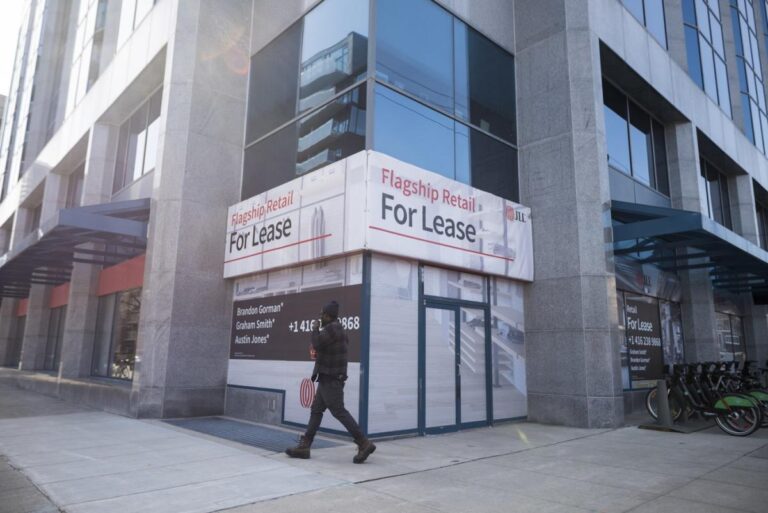TORONTO — Developers are shifting their focus to building rental-only units, in some cases at the expense of building new residential apartments and commercial buildings, according to an analysis of 12 of Canada’s largest commercial real estate markets.
Re/Max Canada’s 2024 Commercial Real Estate Report, which looked at 12 markets in the first quarter of this year, found that multifamily and industrial real estate were the best-performing asset classes across all cities.
The report found that the federal government’s decision to remove GST on new homes has spurred the construction of purpose-built rental housing, which was the main focus in all major cities surveyed, followed by student housing and senior housing.
Owners of shopping malls and commercial facilities are also increasingly considering adding residential components amid a push for higher density, showing “a clear trend toward mixed-use development in the future.”
But with Canada’s population now exceeding 40 million, efforts to boost homebuilding are still not enough, said Christopher Alexander, president of Remax Canada.
“Even the current upward trend in homebuilding still falls short of the thousands of homes needed in most major markets,” he said in a press release.
The report also found that despite the popularity of e-commerce, local retailers are thriving thanks to a shift away from stores selling clothing and other goods to a more service-focused format.
He also highlighted trends such as the “resurgent” hospitality industry in many regions and strong demand for industrial real estate across Canada.
However, the city centre office sector is struggling, with vacancy rates rising in almost every market across the country.
The conversion of office space has taken some of the excess space off the market by repurposing the property for other needs, particularly growing demand for housing, but the report warns that this is not a silver bullet.
“Renovations are complex and most buildings are not suitable for the process,” the company said.
“The Business Improvement District and plans to revitalize the city’s downtown and attract pedestrians will play a role in the revival of the downtown area. Residential development is certainly driving and improving demand for retail/services as a result.”
Alexander said a variety of factors will determine future trends affecting Canada’s commercial real estate market, including economic performance, interest rates, incentive and development policies, and taxation.
“While a variety of market trends exist, conditions and demand are expected to improve overall as 2024 progresses,” he said.
This report by The Canadian Press was first published June 6, 2024.
Canadian Press

